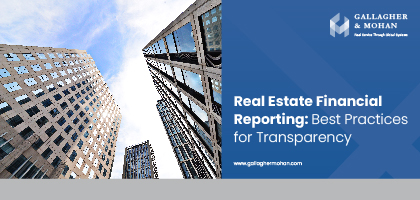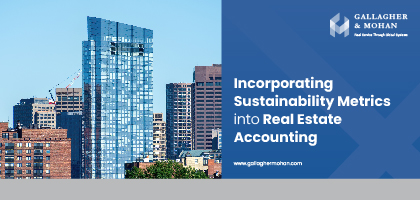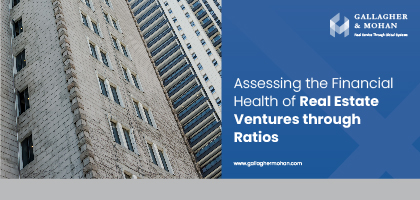25 September 2023
The Future of Corporate Real Estate: Trends and Innovations
In the ever-evolving landscape of corporate real estate, staying ahead of the curve is not just an aspiration; it's a necessity. As the United States continues to be a hub for high-profile corporate real estate firms, agents, and brokers, the industry witnesses a dynamic transformation driven by innovation, sustainability, and technology.
In this blog post, we embark on a journey through the realm of corporate real estate, exploring the trends and innovations that are shaping its future. From cutting-edge technology solutions to sustainable practices that resonate with today's conscientious businesses, we'll delve into the key factors driving success in this competitive arena.
What is Corporate Real Estate?
Corporate real estate refers to the physical properties and assets that a corporation owns or leases for its business operations. These properties can include office buildings, industrial facilities, retail spaces, and more. Corporate real estate is a vital component of a company's infrastructure and plays a pivotal role in its success. It encompasses the management, acquisition, leasing, and development of these properties to support the organization's goals and objectives.
Also Read: A Detailed Guide to Accounting in the Hotel Industry
Why is the Future of Corporate Real Estate Important?
The future of corporate real estate holds significant importance for several reasons:
- Business Competitiveness: In an increasingly competitive business landscape, having the right real estate assets can give companies a strategic advantage. Well-planned corporate real estate can enhance efficiency, productivity, and employee satisfaction.
- Cost Optimization: Real estate is often one of the most substantial expenses for corporations. The future of corporate real estate is crucial for optimizing costs through efficient space utilization, energy-saving practices, and smart investments.
- Workplace Trends: Changing work dynamics, including remote work and flexible schedules, are reshaping how companies use their real estate. Adapting to these trends is essential to meet the evolving needs of employees and clients.
- Sustainability: With growing environmental concerns, corporate real estate must embrace sustainable practices. The future lies in green buildings, energy efficiency, and eco-friendly design to reduce the environmental footprint.
Key Trends and Innovations Shaping the Future of Corporate Real Estate
Several trends and innovations are driving the evolution of corporate real estate:
- Technology Integration: The integration of technology, such as IoT (Internet of Things) sensors, smart building systems, and data analytics, enables companies to gather valuable insights for optimizing space and resources.
- Sustainability and Green Buildings: Sustainable building practices, including LEED certification and renewable energy adoption, are becoming standard. These not only reduce environmental impact but also enhance corporate image.
- Flexible Workspaces: The rise of remote work and flexible scheduling has increased the demand for adaptable office spaces that cater to various work styles and preferences.
- Wellness-Oriented Design: Corporate real estate is focusing on creating healthy and ergonomic environments that prioritize employee well-being, leading to increased productivity and job satisfaction.
- Financial Analysis and Accounting Services: Services like those offered by corporate real estate outsourcing - Gallagher & Mohan play a pivotal role in ensuring sound financial management of real estate assets, helping businesses make informed decisions.
- Marketing Strategies: Tailored marketing strategies are essential to reach high-profile corporate clients and brokers. Leveraging digital marketing, content creation, and targeted outreach can enhance visibility and brand awareness.
Understanding these key trends and innovations is crucial for corporations and real estate professionals looking to adapt, succeed, and thrive in the dynamic landscape of corporate real estate.
Current Landscape of Corporate Real Estate
The current state of corporate real estate in the United States is shaped by several prominent trends and factors. Firstly, despite the rise of remote work, there remains a robust demand for office spaces, particularly in major metropolitan areas, as companies continue to place value on physical office locations for fostering collaboration and nurturing company culture. Simultaneously, there has been a notable surge in the demand for industrial real estate, such as warehouses and distribution centers, driven by the growth of e-commerce and the need for efficient supply chain operations.
Sustainability has become a central focus, with a growing number of corporations prioritizing green building practices to reduce environmental impact and align with sustainability goals. Additionally, companies are increasingly seeking flexible leasing arrangements that allow for scalability and adaptation to evolving workforce needs. Furthermore, the prevalence of remote work has prompted some corporations to explore opportunities in rural areas, where costs are lower, and employees can enjoy an improved quality of life. Finally, technology, including data analytics and IoT, plays a pivotal role in optimizing space utilization, enhancing security, and overall, improving the workplace experience.
Also Read: Slowdown in CRE Lending: CBRE's Insights and Market Trends
Sustainable Real Estate Practices
In recent years, sustainability has evolved from a buzzword to a fundamental principle in the world of corporate real estate. The growing importance of sustainability can be attributed to several factors:
- Environmental Responsibility: Corporations are increasingly aware of their environmental impact and are taking steps to reduce it. Sustainable real estate practices align with this commitment to environmental responsibility.
- Cost Savings: Sustainability isn't just about being eco-friendly; it's also about saving costs. Green buildings are designed to be energy-efficient, leading to lower utility bills and operational expenses.
- Regulatory Compliance: Governments and regulatory bodies are implementing stricter environmental regulations. Companies that adopt sustainable practices in their real estate portfolios are better positioned to comply with these regulations.
- Enhanced Corporate Image: Sustainability initiatives contribute to a positive corporate image. Businesses that prioritize sustainability are viewed favorably by customers, investors, and employees.
- Market Demand: Many clients and tenants, particularly in the corporate sector, now prefer sustainable office spaces. Meeting this demand can lead to higher occupancy rates and rental income.
Innovative green building practices are driving a revolution within the corporate real estate landscape, bringing about a multitude of advantages while significantly reducing environmental impact. These practices encompass a wide range of benefits:
Firstly, energy efficiency takes center stage. Green buildings integrate cutting-edge features such as advanced insulation, efficient HVAC systems, and LED lighting, resulting in substantial energy savings. These measures not only cut operational costs but also contribute to a reduction in greenhouse gas emissions, aligning with environmental sustainability goals.
Secondly, the integration of renewable energy sources is a hallmark of sustainable buildings. Solar panels and wind turbines are often employed to generate clean and cost-effective power, further decreasing a property's carbon footprint.
Water conservation is another critical facet of green building practices. Sustainable buildings incorporate water-efficient fixtures and technologies, curbing water consumption and related expenses, while simultaneously addressing water scarcity concerns.
A paramount consideration is the creation of a healthy indoor environment. Green buildings prioritize indoor air quality through the use of low-VOC (volatile organic compounds) materials and advanced ventilation systems. This leads to improved occupant health and increased productivity among employees.
Waste reduction is also a central focus. Sustainable construction practices minimize waste generation and frequently integrate recycling and waste reduction programs into the building process, promoting eco-friendliness.
Achieving a LEED (Leadership in Energy and Environmental Design) certification represents a significant milestone in green building endeavors. This prestigious recognition highlights a building's sustainable features and can command higher rental rates and property values, reflecting the growing demand for environmentally responsible spaces.
Moreover, while green building practices may entail higher upfront costs, they offer substantial long-term cost savings. These encompass reduced energy bills and lower maintenance expenses, making sustainability a financially prudent choice.
Finally, green buildings often demonstrate greater resilience to climate-related risks, decreasing potential disruptions to business operations. This resilience underscores the importance of sustainability in future-proofing corporate real estate investments.
Real Estate Financial Analysis and Accounting Services
Financial analysis and accounting are fundamental to the success of corporate real estate for several reasons:
- Informed Decision-Making: Accurate financial data and analysis are essential for making informed decisions regarding real estate investments, leasing, and property management. It helps corporations evaluate the financial viability of various options.
- Cost Control: Financial analysis allows companies to monitor and control costs associated with real estate, including property maintenance, utilities, and taxes. This cost control directly impacts the bottom line.
- Asset Optimization: Effective financial analysis helps identify underperforming assets and opportunities for optimization. It enables companies to allocate resources where they will have the most significant impact.
- Risk Management: Real estate investments carry inherent risks. Financial analysis assesses these risks and helps implement strategies to mitigate them, ensuring a more stable and secure real estate portfolio.
- Compliance and Reporting: Accurate accounting is essential for complying with regulatory requirements and financial reporting standards. It ensures transparency and accountability in corporate real estate operations.
- Tax Planning: Proper financial analysis and accounting enable tax planning and optimization, helping companies minimize tax liabilities associated with their real estate holdings.
- Investor Relations: For companies with real estate investments that have shareholders or investors, transparent financial reporting fosters trust and confidence.
How Gallagher & Mohan's Services Can Address These Needs
At Gallagher & Mohan, we pride ourselves on our ability to cater to the specific financial analysis and accounting needs of corporate real estate. Our services come with a multitude of advantages that set us apart in the industry. Drawing from our extensive expertise in real estate financial analysis and accounting, we bring a high degree of accuracy and reliability to every financial assessment we undertake.
Our service portfolio is comprehensive, covering the entire real estate lifecycle, from detailed financial modeling and lease analysis to meticulous budgeting and comprehensive financial reporting. We leverage cutting-edge financial software and technology to integrate data and insights in real-time, empowering our clients to make timely and well-informed decisions. What truly defines our approach is our commitment to customization, ensuring that each client's unique requirements, whether managing a vast corporate portfolio or a single property, receive tailored solutions that precisely fit their needs.
Additionally, we excel in identifying and mitigating financial risks associated with real estate investments, providing our clients with peace of mind and a more secure financial future. Our efficiency-driven approach not only promises cost savings but also enhances operational efficiency, allowing companies to direct their resources toward core business activities.
Moreover, we prioritize strict compliance with accounting standards and regulatory requirements, reducing the risk of financial penalties. At Gallagher & Mohan, we see our role as not just a service provider but as a trusted partner in the financial success of our clients' corporate real estate ventures.
Conclusion
The future of corporate real estate is undergoing a remarkable transformation, driven by a convergence of factors ranging from technological innovations to evolving workplace dynamics and sustainability imperatives. This evolution is not just a matter of trend; it is essential for businesses looking to thrive in an increasingly competitive environment.
We have explored the pivotal role of sustainability, where eco-friendly practices and green building initiatives are no longer optional but imperative for reducing environmental impact and achieving long-term cost savings. Additionally, we delved into the changing workplace landscape, characterized by remote work, flexible office spaces, and a heightened focus on employee experience. These trends have reshaped how companies utilize and design their office spaces.
Moreover, we recognized the significance of financial analysis and accounting in corporate real estate. Accurate financial data, risk assessment, and cost control are instrumental in making sound investment decisions and maintaining a financially robust real estate portfolio. Gallagher & Mohan's specialized services were highlighted as a valuable resource for addressing these critical financial needs.
Corporations must adapt and embrace change to remain competitive and relevant. The integration of sustainable practices, the creation of flexible and employee-centric office spaces, and robust financial analysis are not just strategies for success; they are essential elements of a forward-looking corporate real estate approach.
As we look to the future, it's clear that the corporate real estate industry will continue to evolve, presenting new challenges and opportunities. Staying informed and partnering with experts like Gallagher & Mohan will be key to navigating this dynamic landscape successfully. By doing so, businesses can position themselves to thrive, deliver exceptional experiences to their employees, and contribute to a more sustainable and prosperous future in corporate real estate



